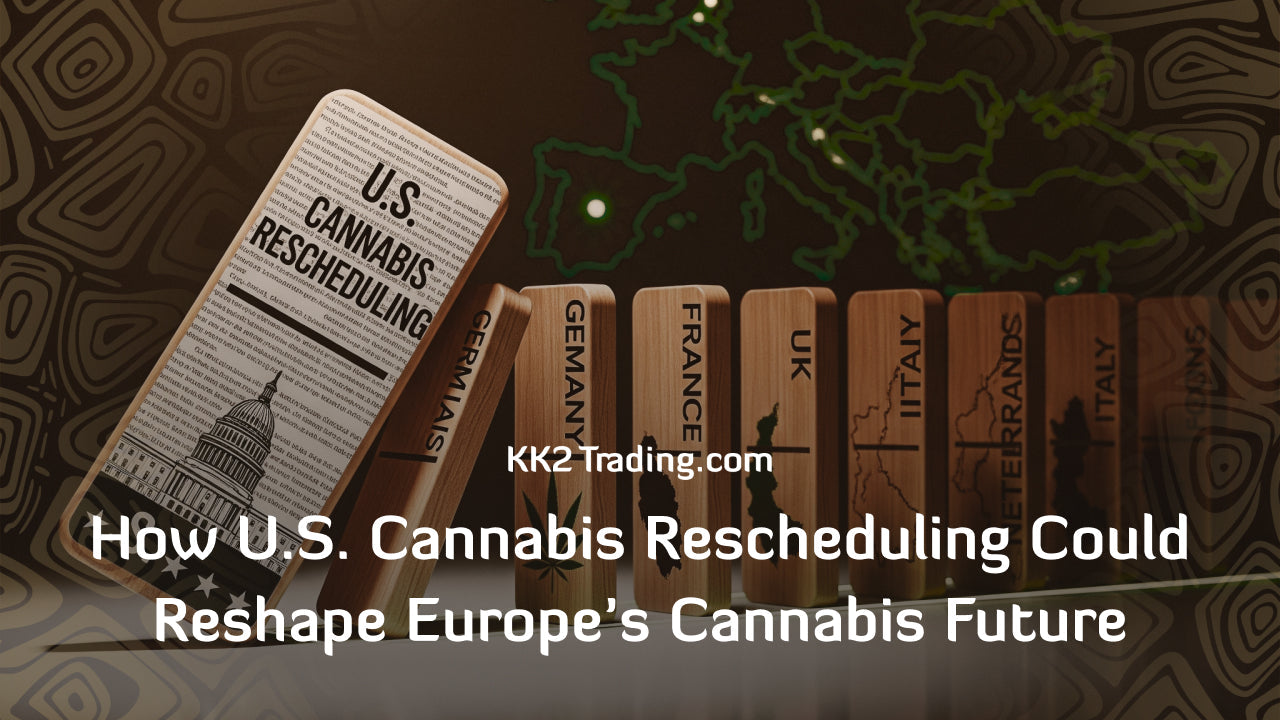
Earlier this month, U.S. President Donald Trump confirmed that his administration is weighing the possibility of rescheduling cannabis at the federal level—from its current Schedule I status (the most restrictive category) to Schedule III.
While many advocates in the United States continue to push for full descheduling—arguing cannabis should be treated like alcohol or tobacco—the political reality suggests that rescheduling is the more likely outcome.
If cannabis is officially moved to Schedule III, it will represent one of the most significant policy shifts in U.S. history. But the impact wouldn’t be confined to North America—it could also reverberate across Europe.
The U.S. Effect on European Cannabis
Although European Union nations are not obligated to follow U.S. policy changes, a transatlantic “butterfly effect” is nearly guaranteed. The question is not if Europe will feel the impact, but to what degree.
The U.S. has historically been a key driver of global cannabis prohibition. A federal policy reversal—even if partial—would be a powerful signal to Europe that the stigma around cannabis is fading, and that modernized regulation is no longer a radical idea.
Immediate Economic Shifts: Tax and Finance
One of the most immediate consequences of rescheduling would be the elimination of IRS tax code 280E restrictions. This provision currently prevents cannabis businesses from deducting normal business expenses, resulting in tax rates up to 70% higher than other industries.
-
Rescheduling would unlock billions in tax savings annually.
-
Freed capital would likely be reinvested, with U.S. companies expanding into European markets.
Additionally, rescheduling would expand access to banking and loans, making U.S. cannabis firms more competitive internationally and giving them the resources to establish footholds in Europe.
Opening Doors for Exports
Despite being the largest legal cannabis market in the world, the U.S. has been largely absent from the international export scene. Canada, by contrast, has supplied much of the cannabis imported into Europe. For example, Germany imported over 43 tonnes of medical cannabis in Q2 2025, mostly from Canadian producers.
If the U.S. moves cannabis to Schedule III, federal barriers to exporting THC-based medical products would ease significantly. That would immediately alter Europe’s supply chain, with U.S. companies competing for the same import contracts currently dominated by Canadian and Latin American producers.
Political Ripple Effects in Europe
Perhaps the most profound impact would be symbolic and political. The U.S., once the architect of global prohibition, shifting its stance would embolden European lawmakers to accelerate their own reforms.
The European Union currently places strict limits on recreational cannabis commerce, but if the U.S. modernizes its federal policy, pressure on Brussels will mount to reconsider those restrictions. This could open the door to broader reform across the continent, reinforcing the momentum already seen in countries like Germany, Malta, and the Czech Republic, which will officially legalize in January 2026. Read more here.
A New Era for Global Cannabis Policy
While rescheduling is not the same as full legalization, the ripple effects would be immense. Financially, U.S. cannabis businesses would gain tools to expand abroad. Politically, Europe could gain the confidence to pursue deeper legalization models.
If and when the U.S. reschedules cannabis, the shockwaves will be felt well beyond its borders—reshaping the trajectory of Europe’s cannabis industry and pushing the global conversation closer to normalization.



